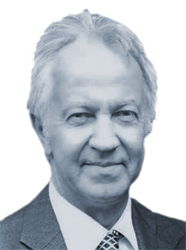 Chuck Blazer is a one-off character, larger than life, instantly recognisable, forceful and clever. He would have been mischeviously well aware that the announcement of his impending resignation after two decades as CONCACAF general-secretary would raise more questions than it answers.
Chuck Blazer is a one-off character, larger than life, instantly recognisable, forceful and clever. He would have been mischeviously well aware that the announcement of his impending resignation after two decades as CONCACAF general-secretary would raise more questions than it answers.
One of those questions whether elected officials of major footballing bodies will be eligible to sit on FIFA’s executive committee when president Sepp Blatter unveils his eagerly-awaited, long-in-coming reform proposals.
The issue arises because Blazer – to the envy – of other confederation officials was the only man on the exco blessed with this dual status. He sits on the exco as representative for North America; the unlamented Jack Warner, apart from CONCACAF president, represented the Caribbean; Rafael Salguero is your man for central America.
The catch was that the statutes of the other confederations specifically prohibit appointed officials, i.e. employees, from also holding an elective role at the very beating heart of FIFA.
Did Blazer get wind of a suggestion that Blatter is planning to withdraw that concession? All will be revealed in Zurich on October 22.
Either way Blazer – as he prepares to quit the executive role in which he has achieved a great deal for CONACAF over the past two decades whatever his strangely convoluted payment arrangements – intends to serve out his FIFA term to 2013.
This means that the next general secretary of CONCACAF will not to benefit from similar access to the corridors of power. Ariel Alvarado of Panama, a member of the CONCACAF executive, has been tipped as the new GS. Certainly he would be able to work with the compromised Carribean officials rather more easily than Blazer, their whistleblower.
Earlier this year Blazer explained the background to me, saying: “I couldn’t hold the office of general secretary and seek one of the elected positions inside the confederation but there’s no inhibition on holding the FIFA position I have.
“My predecessor as general secretary had also been a FIFA executive member but from central America because he – and the offices, for that matter – were based in Guatemala.”
In fact, when Blazer was first designated with the help of Warner, to succeed Guillermo Canedo on the FIFA exco, he faced a stiff challenge from Alan Rothenberg, who had headed the 1994 World Cup organisation and become president of US Soccer. Rothenberg felt he should have been chosen and took his protest to FIFA.
Scottish lawyer David Will, the British vice-president who was then chairman of FIFA’s legal committee, eventually came down in favour of Blazer.
Where there’s a Will there’s a way.






